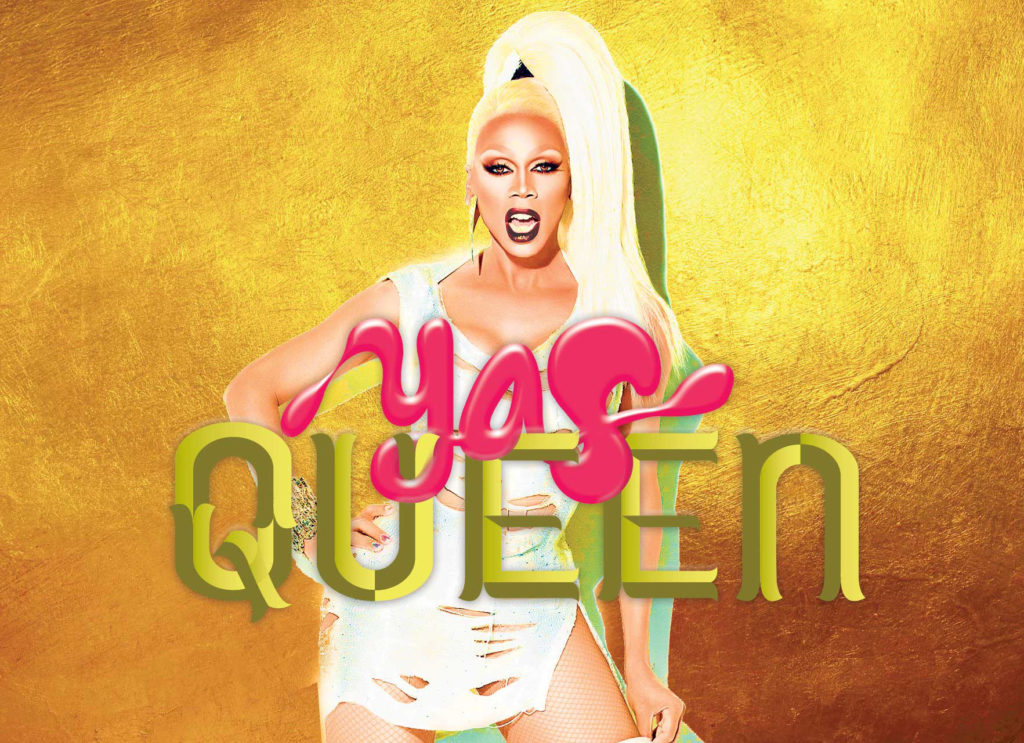A comprehensive crash course on drag vocabulary
Abstract: Drag vocabulary is responsible for most of the common slang we use all around the world. While many cultures appropriate drag slang and misrepresent the meanings of the words, drag vocabulary is a key component of drag culture. Drag artist use language as a method of inclusion, to violate societal norms and to create their own vernacular.
https://mic.com/articles/121464/rupauls-drag-race-shade-yaaasss-vocabulary#.jx4nnLDGT

Condragulations! You’ve entered the queendom of drag with all of the tea and shade one can consume. Entering the queendom will educate you on all the slang and lingo the drag community has to offer. First and foremost, slang in the drag community is used as a method of inclusion. To explain, in an article titled “Homosexual Slang”, sociologist Julia P Stanley (1970) wrote “homosexual slang is a conscious acquisition on the part of the speaker, it acts as a signal of membership within the group and as a method of unifying the members”.
https://www.jstor.org/stable/455061?seq=1#metadata_info_tab_contents

In other words, terms such as “slayed for the gods” and “giving me life” are used as a compliment and motivation in the drag community. In his article “Speaking like a queen in RuPaul’s Drag Race: Towards a speech code of American drag queens.” Nathaniel Simmons (2014) supports those ideas by writing “To speak like a Queen offers the opportunity to be a part of a larger family of sisters that offer love and support regardless of the duration of relational length”. Drag vocabulary serves a sisterhood realness for Drag Queens, in the sense that their vocabulary is sacred and unique to Queens, and Queens only.
https://doi.org/10.1007/s12119-013-9213-2
In addition to inclusion, drag vocabulary is used as a method of violating societal norms. To explain in addition to her previous statements about drag slang, in another article “When we say ‘Out of the Closet”, Stanley (1974) wrote “gay slang reflects this dichotomy in the lives of gay people. On the one hand pointing to the transient nature of gay relationships and our rebellion against the kind of lives that our society would have us adopt; on the other hand, embodying certain of the values of heterosexuals indicating a desire to blend into the larger culture”. Stanley clocks society on their double standards and highlights the intentional use of drag vocabulary to eliminate cultural norms. https://www.jstor.org/stable/455061?seq=1#metadata_info_tab_contents
https://enterthequeendom.com/glossary
Interestingly, to get a better understanding of drag vocabulary, Stephen Mann studied a southern belle drag Queen by the name of Suzanne. In his article “Drag queens’ use of language and the performance of blurred gendered and racial identities” Mann wrote that drag Queens “make use of languages such as expletives, which allow them to play with gender through creative combinations of linguistic form, linguistic content and physical appearance”.
https://doi.org/10.1080/00918369.2011.581923
https://www.popsugar.com/news/History-Drag-Drag-Queen-Culture-44512387

Mann’s research reiterates the social barriers that drag culture continues to break; the use of language is intentional in violating gender norms in a creative matter. Drag vocabulary eliminates cultural norms by poking fun at our gender norms. This can be done using pronouns, for example, instead of using “he” for a biological man, in drag culture, they would use “her” instead; these slight changes are huge shifts in our societal gender norms. Drag artists use methods such as these to violate societal norms and to write their own rules. So, as our drag crash course has ended, remember that if you are using drag slang such as fishy, busted, femme, butch, gag or tuck, drag vocabulary is all about inclusion and giving a big “F YOU” to societal norms. Now sashay away!

Your post was great and really gave insight on the many terms that surround the world of drag. Of course, a few drag terms have become super popular around social media, so before taking this course I had heard a couple. I like that you explained how these drag terms help drag artists feel as though they are a part of a sisterhood because they are able to connect with each other.
I really enjoyed your post! It was so informative, especially since all the different terms can be very confusing for people hearing it for the first time. Just like any other types of slang, the ones that aren’t used as much can be hard to understand what their meanings are. I love how you said that drag vocabulary is about inclusion, but also a way to say “F you” to societal norms!
I love love love how you laid all of this out, especially bolding some of the phrases! Coming into this class, the slang was one thing that tripped me up the most. It’s like a whole other language sometimes! I like how you pointed out that their slang is about breaking the norms. It’s crazy to think about how some of the things we say on the regular originated in the drag community.